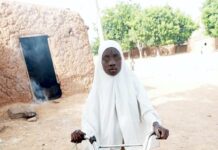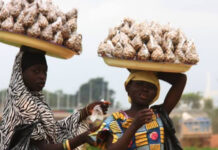A surge in reported incidents of sexual and gender-based violence has become a pressing issue in Kano State, posing a severe threat to the well-being, dignity, safety, and independence of the victims, yet it remains veiled by a veil of silence.
Statistics from the National Agency for the Prohibition of Trafficking in Persons (NAPTIP) paint a grim picture: women in Kano face staggering percentages of abuse from their partners. Emotional violence stands at 19 percent, physical violence at 14 percent, and sexual abuse at five percent throughout their lives.
Shocking reports reveal that one in three Nigerian women, aged 15 to 49, has endured various forms of physical violence, from coerced and premature marriages to enduring physical, mental, or sexual assaults.
A poignant tale surfaces amid these distressing statistics—a young woman’s ambition to become a medical doctor was shattered when she was forcibly married off to a man over two decades her senior.
Read Also:
Amidst mounting concerns, the National Human Rights Commission (NHRC) in Kano has turned its attention to investigating such cases, particularly following the state’s adoption of the Child Rights Protection Law.
The unsettling trend of sexual and gender-based violence appears to be gaining ground in Kano. Critics argue that the failure to domesticate the Violence Against Persons Prohibition (VAPP) Act within the state exacerbates the situation.
A recent workshop organized by the Federation of Muslim Women Associations in Nigeria (FOMWAN) underscored the urgent need for robust civic advocacy to combat SGBV as a critical step toward ending this distressing trend.
While predominantly impacting girls and women, instances involving boys and men also emerge within the spectrum of SGBV. Experts unanimously stress the imperative for collective action to upscale preventive measures and responses to counter such distressing cases, ensuring that no individual falls victim to these atrocities.

























